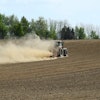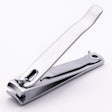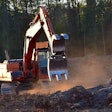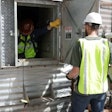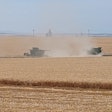
Six strategies for better sleep
- Stick to a sleep schedule. Go to bed and get up at the same time -- even on the weekends
- Pay attention to what you eat and drink. Don't go to bed hungry or stuffed. Nicotine, caffeine and alcohol deserve caution, too.
- Create a restful environment. A cool, dark, quiet room is ideal. Avoid screen-time before bedtime. Calm activities -- taking a bath, relaxation techniques -- might promote better sleep
- Limit daytime naps. If you choose to nap, limit yourself to 30 minutes, and avoid doing so late in the day.
- Include physical activity in your daily routine. Regular physical activity can promote better sleep.
- Manage worries. Try to resolve your worries or concerns before bedtime. Jot down what's on your mind and then set it aside for tomorrow.
Information provide by the Mayo Clinic.
Studies have indicated that even moderate sleep deprivation can cause impairment equivalent to drinking a couple of beers.
GEAPS presented a webinar on Wednesday titled "Fall Harvest Safety … Sleep is for the Weak and Other Lies We Tell Ourselves."
Feeling tired is a common challenge, especially during busy times like harvest. Unusual schedules, stress and working in hot environments only makes things worse.
We might tell ourselves that we will be okay or that we will catch up later, but what impact does fatigue have on worker safety and health?
Long work hours can increase our stress levels, contribute to weight gain and cause more frequent illness and on-the-job accidents that may even result in a fatality.
During the webinar, Dr. Carol Jones, Professor Emeritus at Oklahoma State University, noted awareness of fatigue-creating environments and training ahead of time is important.
"Employees need to make sure they understand that they need to take care of themselves," says Jones.
Managers can help lessen the stress by scheduling recurring events, such as maintenance, ahead of the busy times like harvest or planting season.
"Do some everyday things ahead of time so there's not extra work piled on top of a hectic time," she noted. "Meet with employees and remind them that it's going to be a busy time, and talk about how to prepare themselves for that mentally. This increases their awareness and gives them a buy-in to taking care of themselves."
Everyone is tired
Dr. Kevin Moore, assistant professor of Occupational and Environmental Health Science at the University of Texas at Tyler, started his presentation by stating that everyone is tired.
- 70% of Americans report they routinely get insufficient sleep
- 30% of U.S. workers and 44% of night shift workers report less than six hours of sleep on average
- 90% of employers are impacted by tired employees
- Every year, the U.S. loses 1.23 million working days due to insufficient sleep as sleep-deprived workers are twice as likely to miss work
"Fatigue is a hazard that needs to be managed," says Moore. "Just like any other hazard you deal with at your workplace."
Weariness from physical or mental exertion leads to decreased attention to detail, impaired judgement, and slowed response time. It also impacts productivity, safety and overall health.
"Sleep is an essential function that allows your body and mind to recharge, leaving you refreshed and alert when you wake up," notes Moore.
"Most adults need seven to nine hours of good, quality sleep per night in order to be healthy and functioning at peak condition."
Sleep deprivation, which can occur when you're out of sync with your normal work schedule, can impact cognitive and physical performance.
"You might not feel sleepier, but performance will continue to degrade," says Moore.
Short-term effects include:
- Slowed thinking
- Reduced attention span
- Memory problems
- Poor or risky decision making
- Making mistakes or omissions
- Longer reaction time
- Lack of energy
- Work effectiveness and motivation decrease
- Mood changes, including feelings of stress, anxiety or irritability
Long-term impacts can include diabetes, cardiovascular disease, reproductive issues and obesity.
Fatigue Risk Management System
Having sleep problems increases the relative risk of being injured at work by 1.62 times, says Moore.
"Approximately 13% of work injuries are due to sleep problems," he notes. "Non-standard shifts -- overtime, night shifts -- were found to have a higher risk for occupational injuries and illnesses than conventional day shifts. Working at least 12 hours per day was associated with 37% increased hazard rate."
Long shifts, like those employees face during peak harvest time, diminishes a worker's ability to remain focused and alert. In addition to reduced productivity, it's harder for employees to deal with stress and can impair motor skills, opening them up to more injuries.
Fatigue management is a shared responsibility between the company and the employee, says Moore.
"It's critical to engage workers in managing risk associated with fatigue," he says. "And like other safety topics, the support of management is critical to success."
Grain elevators should create a Fatigue Risk Management System that answers the following questions.
- Do we have enough personnel to support our workload in order to give adequate rest time for employees?
- Are there shift related issues that can be improved? Consider shift type, length, transitions. Do schedules permit opportunities to obtain nighttime sleep? Do we time breaks and meals to combat fatigue? Do we schedule critical tasks during peak times of alertness?
- How is our work environment? Light, temperature, humidity and ergonomics can all impact fatigue.
- Do we provide training and education for employees to create awareness of and help address sleep disorders?
- Can our employees recognize excessive fatigue? Establish a safety culture supportive of peer-to-peer engagements, so everyone has each other's backs.
About the speakers
Dr. Carol Jones, PE, joined the Biosystems and Ag Engineering Department Faculty at Oklahoma State University in 2002 after a long career in production agriculture and materials handling design. She recently retired from her fulltime professorship to work as an instructor with OSU’s Fire Service Training Grain Entrapment Rescue program.
Dr. Kevin Moore, CSP is an assistant professor of Occupational and Environmental Health Science at the University of Texas at Tyler. He received his Ph.D. in Biosystems Engineering from Oklahoma State University. Dr. Moore is engaged in protecting worker health and safety, especially in the agriculture and construction industries. He is interested in the evaluation and assessment of workplace hazards, worker attitudes and behaviors concerning safety, respiratory protection, and grain handling safety.


